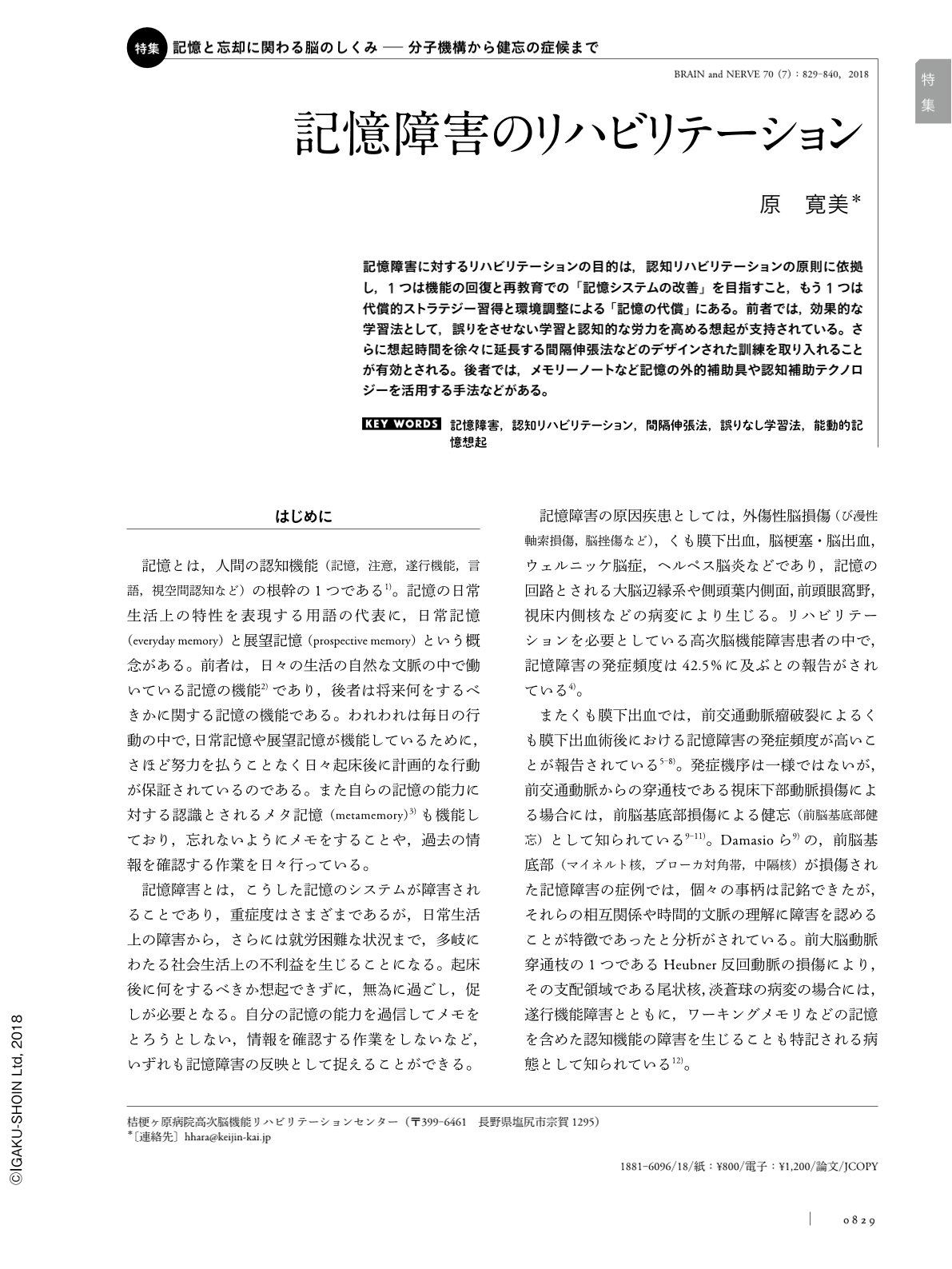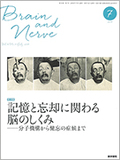Japanese
English
- 有料閲覧
- Abstract 文献概要
- 1ページ目 Look Inside
- 参考文献 Reference
記憶障害に対するリハビリテーションの目的は,認知リハビリテーションの原則に依拠し,1つは機能の回復と再教育での「記憶システムの改善」を目指すこと,もう1つは代償的ストラテジー習得と環境調整による「記憶の代償」にある。前者では,効果的な学習法として,誤りをさせない学習と認知的な労力を高める想起が支持されている。さらに想起時間を徐々に延長する間隔伸張法などのデザインされた訓練を取り入れることが有効とされる。後者では,メモリーノートなど記憶の外的補助具や認知補助テクノロジーを活用する手法などがある。
Abstract
Two theoretical frameworks based on cognitive rehabilitation principles are recommended for the rehabilitation of memory impaired individuals. The first is improving memory function by the remediation of brain plasticity, known as remediation-oriented rehabilitation, and second is the compensation of memory function through the use of external memory aids, environmental modifications, and intact cognitive functions to overcome limitations in daily life. In rehabilitation of episodic memory impaired individuals, it has been recognized that the effortful active retrieval technique is more effective than the memorization technique. In contrast, the errorless learning technique with high-effort conditions and the active participation of patients has been recognized to be particularly effective in directly improving impaired episodic memory systems. More recently, another mnemonic strategy called the spaced retrieval technique has gained support. The theoretical components of spaced retrieval consist of classical conditioning, priming, the spacing effect, and errorless learning by taking advantage of the implicit memory system, which is preserved in many people with memory loss.

Copyright © 2018, Igaku-Shoin Ltd. All rights reserved.


